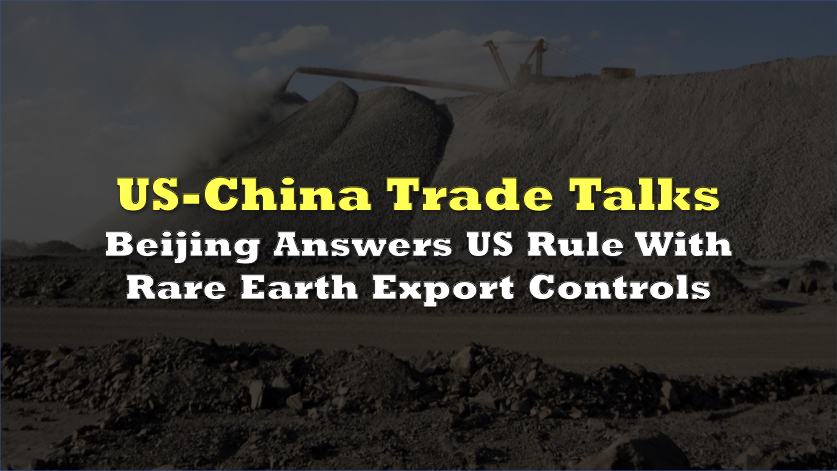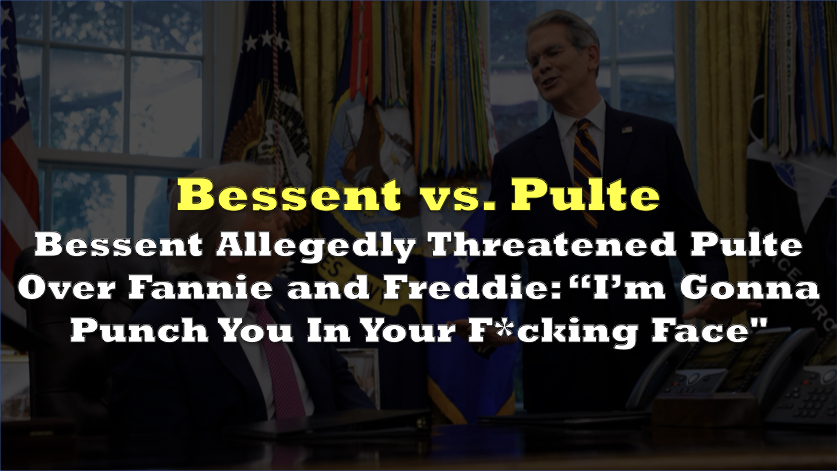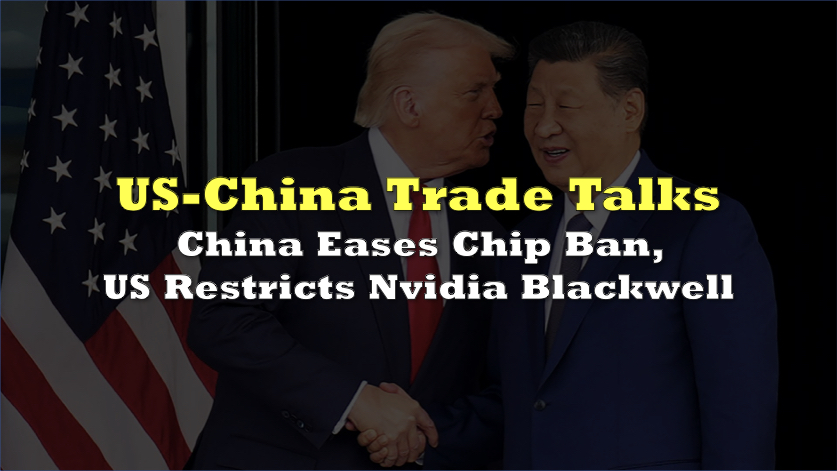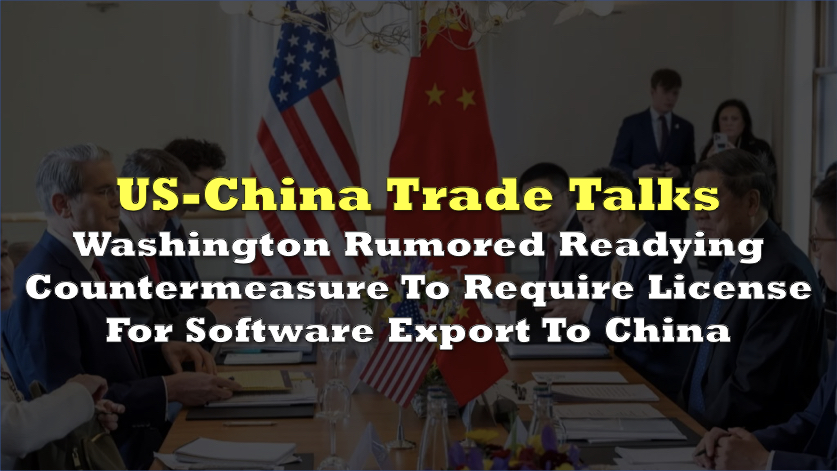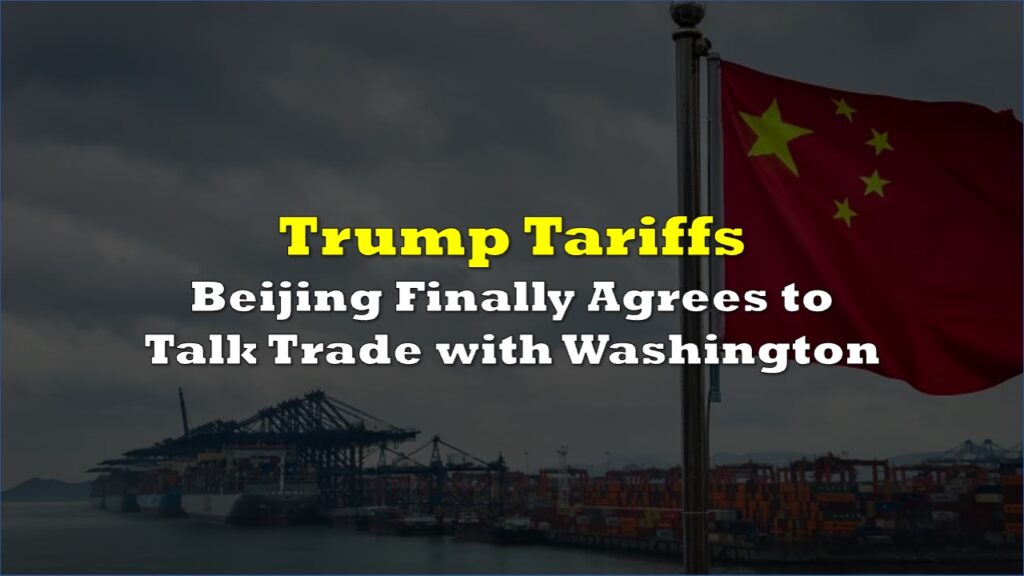China has imposed sweeping export restrictions on rare earth elements critical to defense systems and advanced technology, significantly escalating trade tensions with the United States and threatening global supply chains just weeks before Presidents Donald Trump and Xi Jinping plan to meet.
China announced the new controls in early October. They take effect December 1 and will force exporters to obtain government approval for rare earth extraction and refining equipment, as well as permanent magnets used in military applications. The regulations will largely deny export licenses to companies affiliated with foreign militaries, including US defense contractors.
Beijing dominates global rare earth refining, handling over 90% of the world’s processing. Manufacturers need the minerals to produce weapons systems, electric vehicles, wind turbines, smartphones, and semiconductors.
US Treasury Secretary Scott Bessent and Trade Representative Jamieson Greer called the move a “global supply chain power grab” that amounts to “China vs. the world.”
“We and our allies will neither be commanded nor controlled,” Bessent said at a news conference last week. The administration is coordinating with Japan, South Korea, Australia, and European allies on a unified response.
Trump threatened to impose an additional 100% tariff on Chinese imports in retaliation, though he later acknowledged the measure was “not sustainable” and expressed confidence that “I think we’re going to be fine with China.”
The rare earth restrictions fulfill a threat made months earlier. In August, Chinese trade negotiator Li Chenggang warned US officials in Washington that Beijing “would unleash chaos on the global system” if the US proceeded with planned docking fees on Chinese ships, according to Bessent.
“This is clearly something that they were planning all along,” Bessent said, though he acknowledged he didn’t fully convey the warning to Trump, which left the president blindsided when China announced the controls.
The confrontation highlighted deteriorating relations between the negotiating teams. Bessent publicly called Li “unhinged” and “very disrespectful” after the August meeting, where US officials said Li had arrived uninvited and “lectured the Americans.”
From a reliable source, on why Scott Bessent has a grudge against Li Chenggang:
— Zhao DaShuai 东北进修🇨🇳 (@zhao_dashuai) October 21, 2025
1️⃣During the negotiation in Spain, the US delegation threatened more semiconductor control measures against China.
Li Chenggang then picked up the phone and ordered the anti-monopoly investigation… pic.twitter.com/LG8lZVNDBx
On Monday, China removed Li from his positions as permanent representative to the World Trade Organization and deputy permanent representative to the UN in Geneva. Beijing characterized it as a “routine personnel change,” though the timing suggested an effort to reset negotiations.
Bessent and Chinese Vice Premier He Lifeng will meet in Malaysia this week to try to defuse the crisis ahead of the Trump-Xi summit in South Korea in late October.
The two sides have agreed to several 90-day pauses on escalating tariffs since earlier this year. Bessent has indicated the US might extend the current truce for a longer period if China delays implementing the rare earth restrictions.
Beyond rare earths, tensions have mounted over China’s announcement that chipmaker Nvidia violated anti-monopoly laws, and over US demands that Beijing approve the sale of TikTok’s US operations.
BREAKING: 155% tarrif on China from Nov 1, unless we have a deal says US president Donald Trump. pic.twitter.com/MN71fA8WIG
— Sai Ram B (@SaiRamSays) October 20, 2025
Information for this story was found via Bloomberg, and the sources and companies mentioned. The author has no securities or affiliations related to the organizations discussed. Not a recommendation to buy or sell. Always do additional research and consult a professional before purchasing a security. The author holds no licenses.





